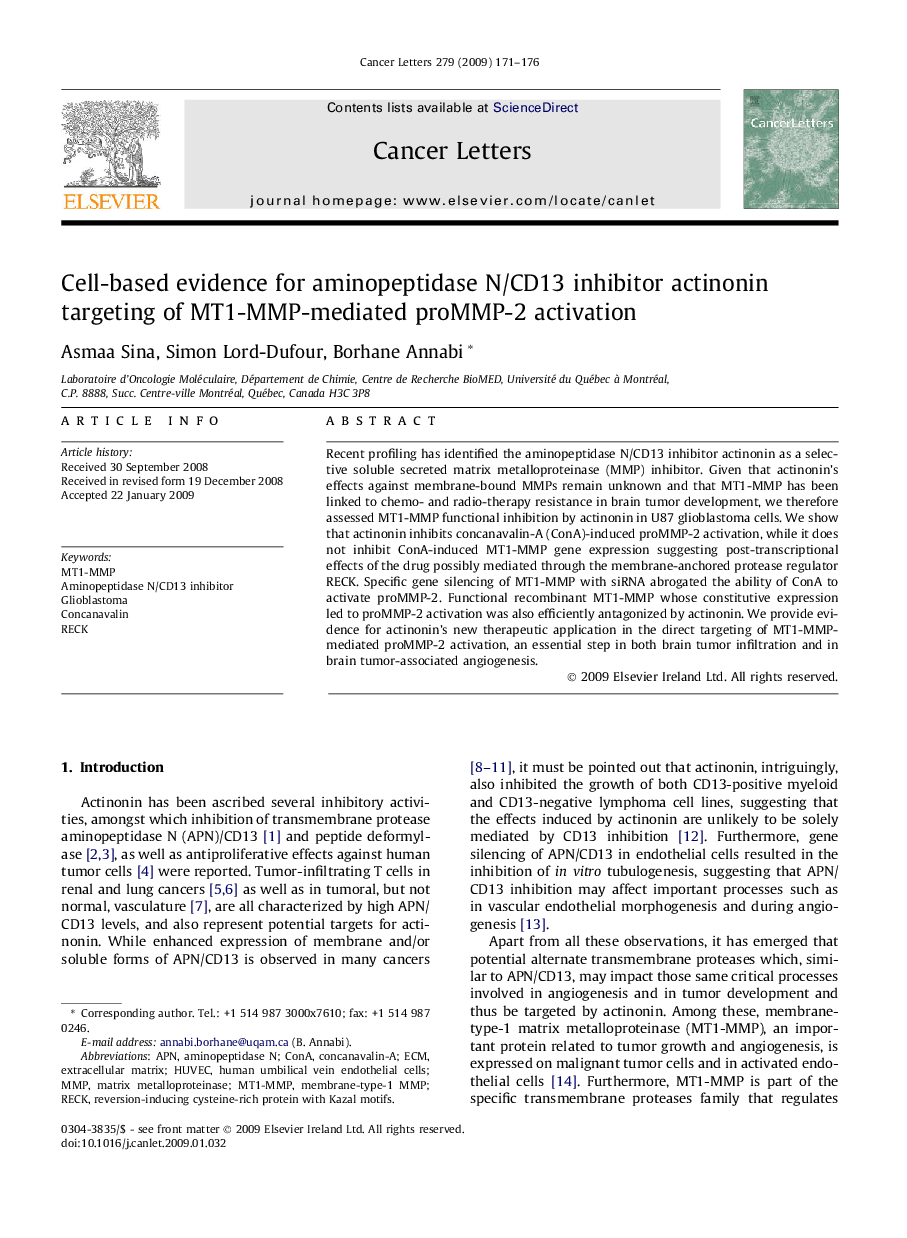| Article ID | Journal | Published Year | Pages | File Type |
|---|---|---|---|---|
| 2114461 | Cancer Letters | 2009 | 6 Pages |
Recent profiling has identified the aminopeptidase N/CD13 inhibitor actinonin as a selective soluble secreted matrix metalloproteinase (MMP) inhibitor. Given that actinonin’s effects against membrane-bound MMPs remain unknown and that MT1-MMP has been linked to chemo- and radio-therapy resistance in brain tumor development, we therefore assessed MT1-MMP functional inhibition by actinonin in U87 glioblastoma cells. We show that actinonin inhibits concanavalin-A (ConA)-induced proMMP-2 activation, while it does not inhibit ConA-induced MT1-MMP gene expression suggesting post-transcriptional effects of the drug possibly mediated through the membrane-anchored protease regulator RECK. Specific gene silencing of MT1-MMP with siRNA abrogated the ability of ConA to activate proMMP-2. Functional recombinant MT1-MMP whose constitutive expression led to proMMP-2 activation was also efficiently antagonized by actinonin. We provide evidence for actinonin’s new therapeutic application in the direct targeting of MT1-MMP-mediated proMMP-2 activation, an essential step in both brain tumor infiltration and in brain tumor-associated angiogenesis.
